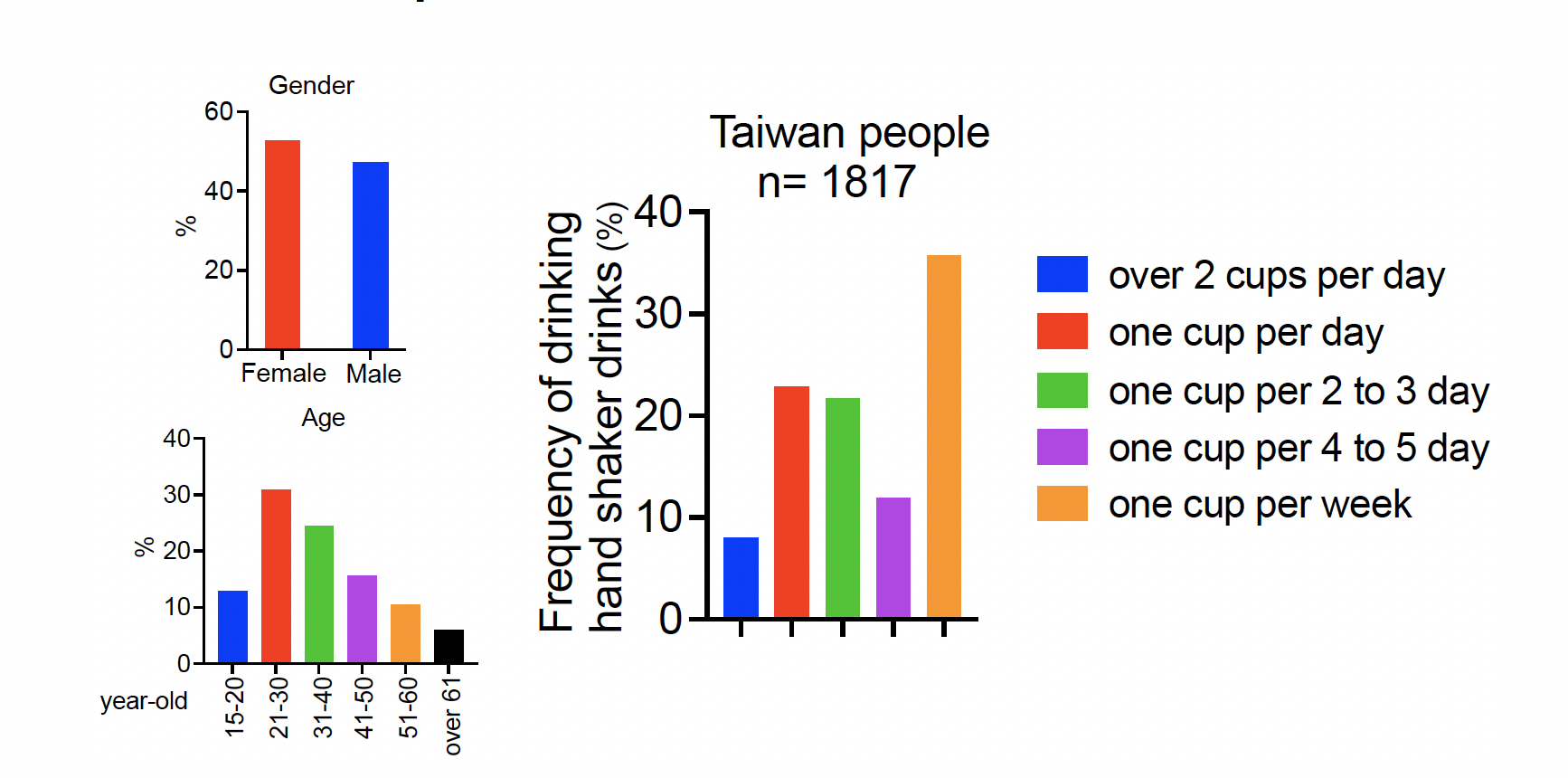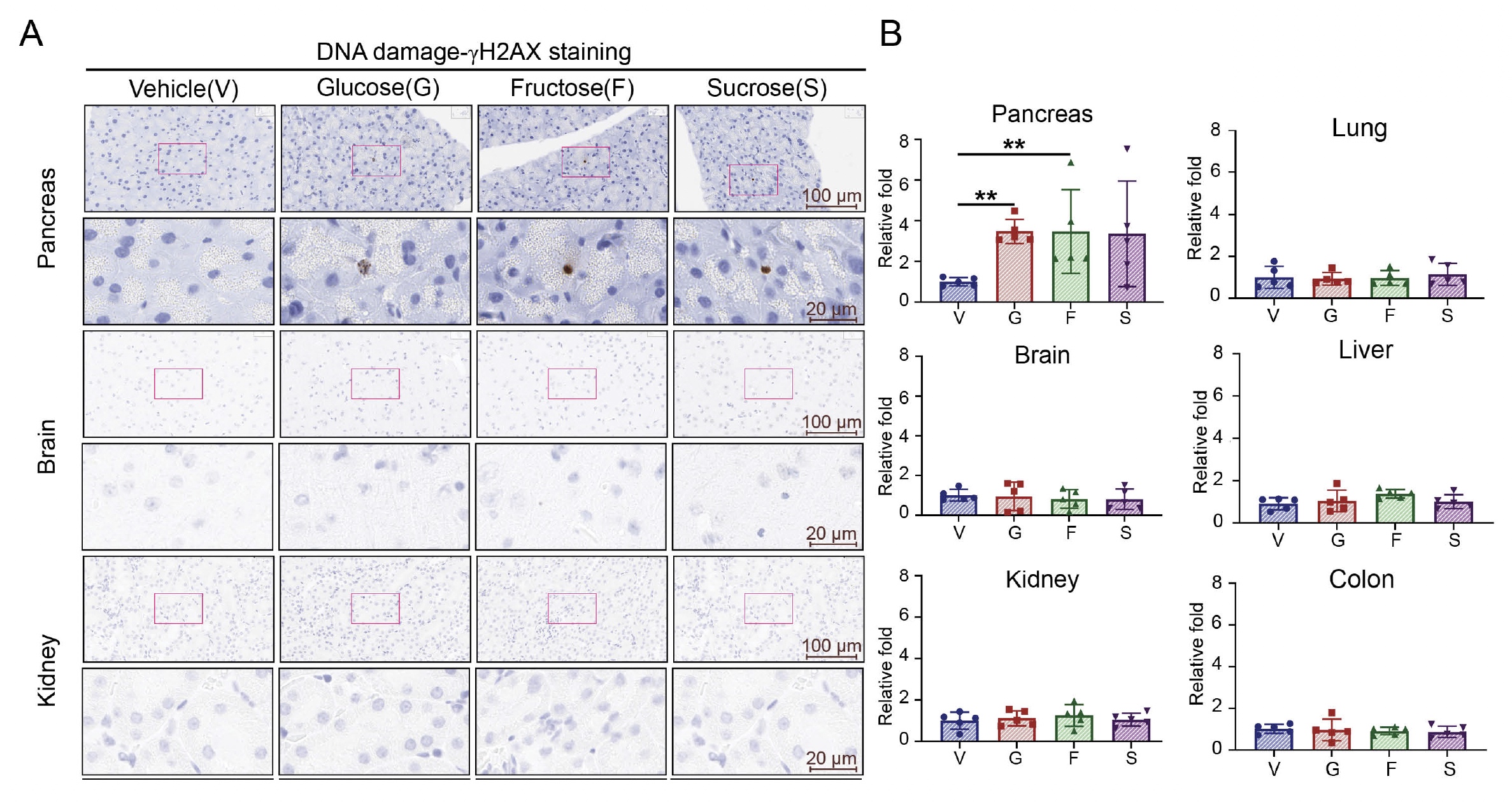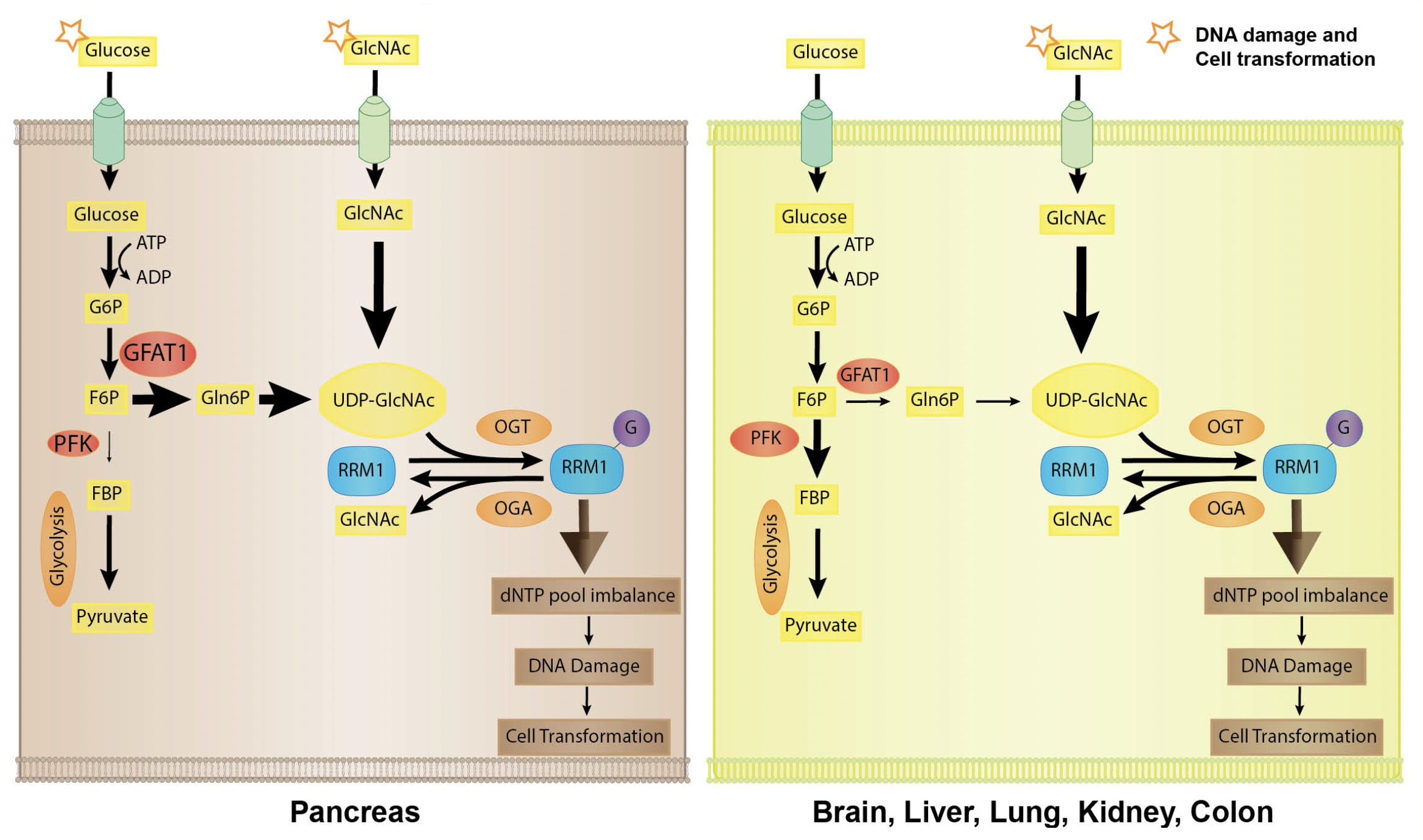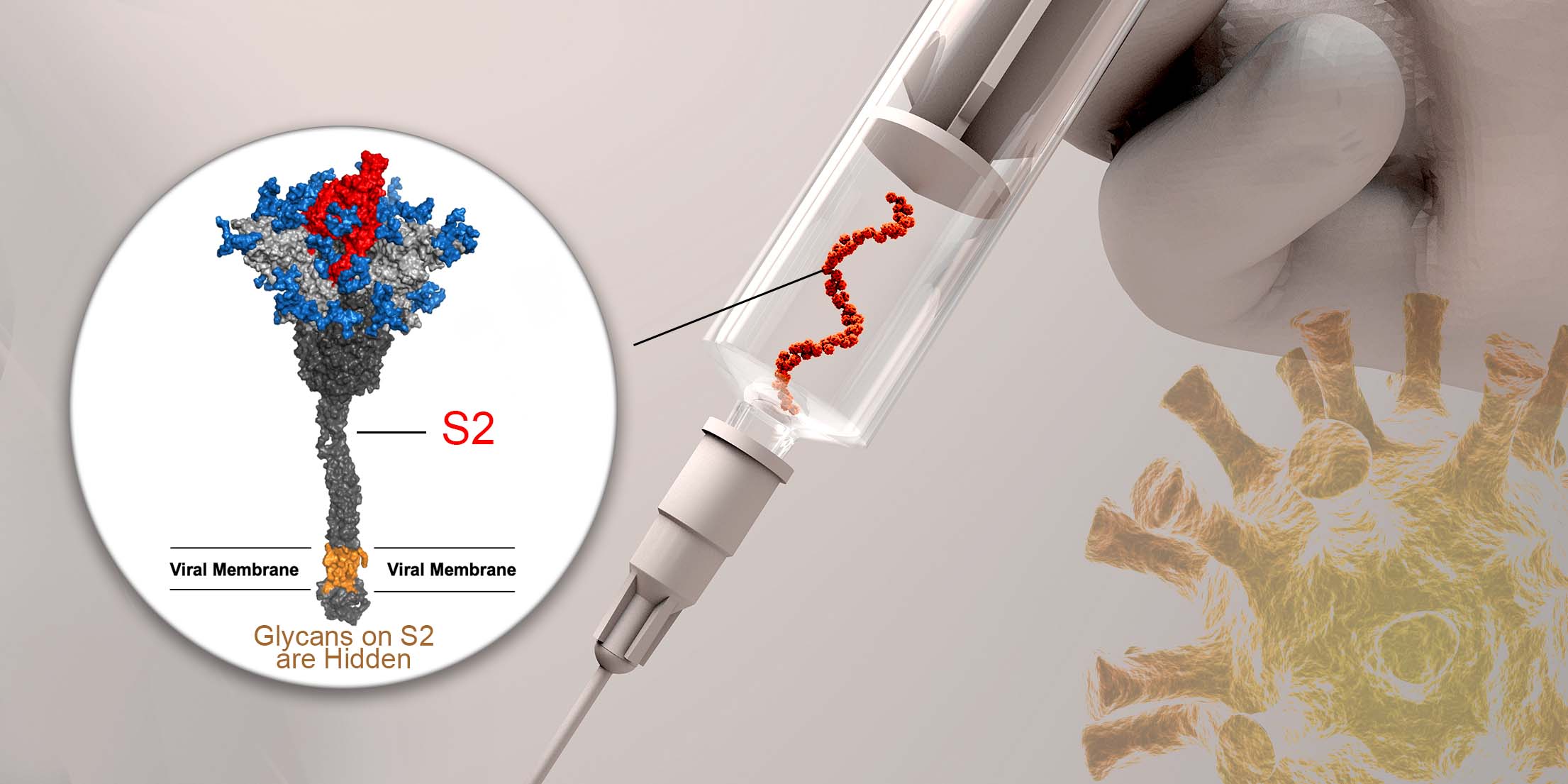About 1.02 billion hand-shaken drinks are sold every year in Taiwan, working out to over 30% of people consume at least one cup a day. Excess sugar's impact on obesity and diabetes is well known. Still, one area that may surprise many men is consuming sugar in excessive amounts may contribute to the in-creased risk of Pancreatic ductal adenocarcinoma (PDAC).
Previously, a team led by Dr. Wen-Hwa Lee and Dr. Chun-Mei Hu of Genomics Research Center has established a mechanistic link between disturbed glucose metabolism and genomic instability that induces oncogenic KRAS mutations and cell transformation preferably in pancreatic cells.
Now, they directly confirmed that excess sugar in daily drinks preferentially increases DNA damage and possibly cancer initiation in pancreatic tissue, according to experiments conducted on mice. In addition, they found that GlcNAc universally induces DNA damage in all six organs examined. Either inhibiting O-GlcNAcylation or supplementing the dNTP pool diminishes the induced DNA damage in these organs, indicating that the mechanism of action is similar to that of high glucose treatment in pancreatic cells. This work is going to be published in the journal "American Journal of Cancer Research".
In the United States, average Americans consume 126g of sugar per day, which exceeds the emphasized 10% of energy intake in the 2015-2020 Dietary Guidelines for Americans. Those sugar sources mainly come from sweets and beverages. Similarly, more than 30% of Taiwanese between the ages of 20 and 30 have at least one hand-shaken drink every day, based on the CMISI survey in 2019. A typical 420ml serving of sweetened beverages can be packed with 44g of sugar in it!

|
| Over 30% of People Consume at Least One Cup of Hand Shaker Drink a Day (Source: CMISI 2019 Survey of Brand Preference of Hand Beverage. Frequency of drinking a hand-shaken drink in Taiwan.) |
To investigate the effects of free sugar, Dr. Hu’s team searched the intake of sugar-sweetened beverages in Taiwan and the United States and concluded that the daily sugar intake of sugar-sweetened beverages for a young-aged 60kg man is 70~75g/day. Converting human dose to mice, they set up an experiment in which mice were treated with glucose 15000mpk, fructose 15000mpk, and sucrose 15000 mpk by oral gavage T.I.D for 7 days.
Immunohistochemistry with γH2AX antibody is considered as an appropriate method for measuring DNA damage in tissues. Dr. Hu’s team used this method to analyze DNA damage and zoomed in on the six tissues, including each mouse's pancreas, liver, lung, kidney, colon, and brain. It turned out that the pancreas, but not the other five tissues, had 4 times more DNA damage after high sugar drink treatment.

|
| Oral Sugar administration Increases DNA Damage in Pancreas |
The researchers discovered that glucose-induced DNA damage in the pancreas is caused by increased O-GlcNAcylation, which may be attributed to the intrinsic ratio of GFAT and PFK activity, a limiting fac-tor that dictates UDP-GlcNAc levels.
An elevated UDP-GlcNAc level isn’t just leading to dNTP pools deficiency—it can also trigger genomic DNA alterations with KRAS mutations and cell transformation. “This result highlights the importance of O-GlcNAcylation-mediated nucleotide perturbation initiating pancreatic tumorigenesis.” research team member Dr. Yuan-Sheng Hsu stated.
Interestingly, adding N-acetyl-D-glucosamine (GlcNAc) into the culture medium can elevate cellular UDP-GlcNAc levels and O-GlcNAcylation in all kinds of cell lines. Given that GlcNAc or Glucosamine sulfate is considered as dietary supplement and consumed daily, the team tried to figure out whether GlcNAc treatment over time could be threaten by more DNA damage.
They compared the effects of glucose and GlcNAc daily on mice through oral gavage for 7 days. It was found that both glucose and GlcNAc treatment increased DNA damage in pancreas, while GlcNAc also increased DNA damage in the other five organs, including brain, kidney, liver, lung, and colon.
These results suggest that the DNA damaging effect of glucose is pancreas-specific, while the effect of GlcNAc is universal in all tissues. It could be the effect of GlcNAc directly modulate UDP-GlcNAc levels as it bypasses the intrinsic ratio of GFAT and PFK activity.

|
| Proposes Model |
The good news is that the DNA damage caused by GlcNAc in vivo could be blocked by either inhibiting O-GlcNAcylation or supplementing with dNTPs, which means combining these approaches may mini-mize DNA damaging effects but sustain therapeutic benefits of glucosamine.
In conclusion, this study brings up that the potential hazards of high sugar drinks and high GlcNAc intake may lead to genomic instability and possibly cancer initiation.
“The impact of high sugar diet might be less immediately visible but irreversible,” says Dr. Chun-Mei Hu, assistant professor of Genomics Research Center. “Enjoying hand-shaken drinks is fine but keep it no more than one cup a day, and remember to order it in medium size and half sugar.”
The paper titled “Differential effects of glucose and N-acetylglucosamine on genome instability” can be read online at: https://e-century.us/files/ajcr/12/4/ajcr0142180.pdf




